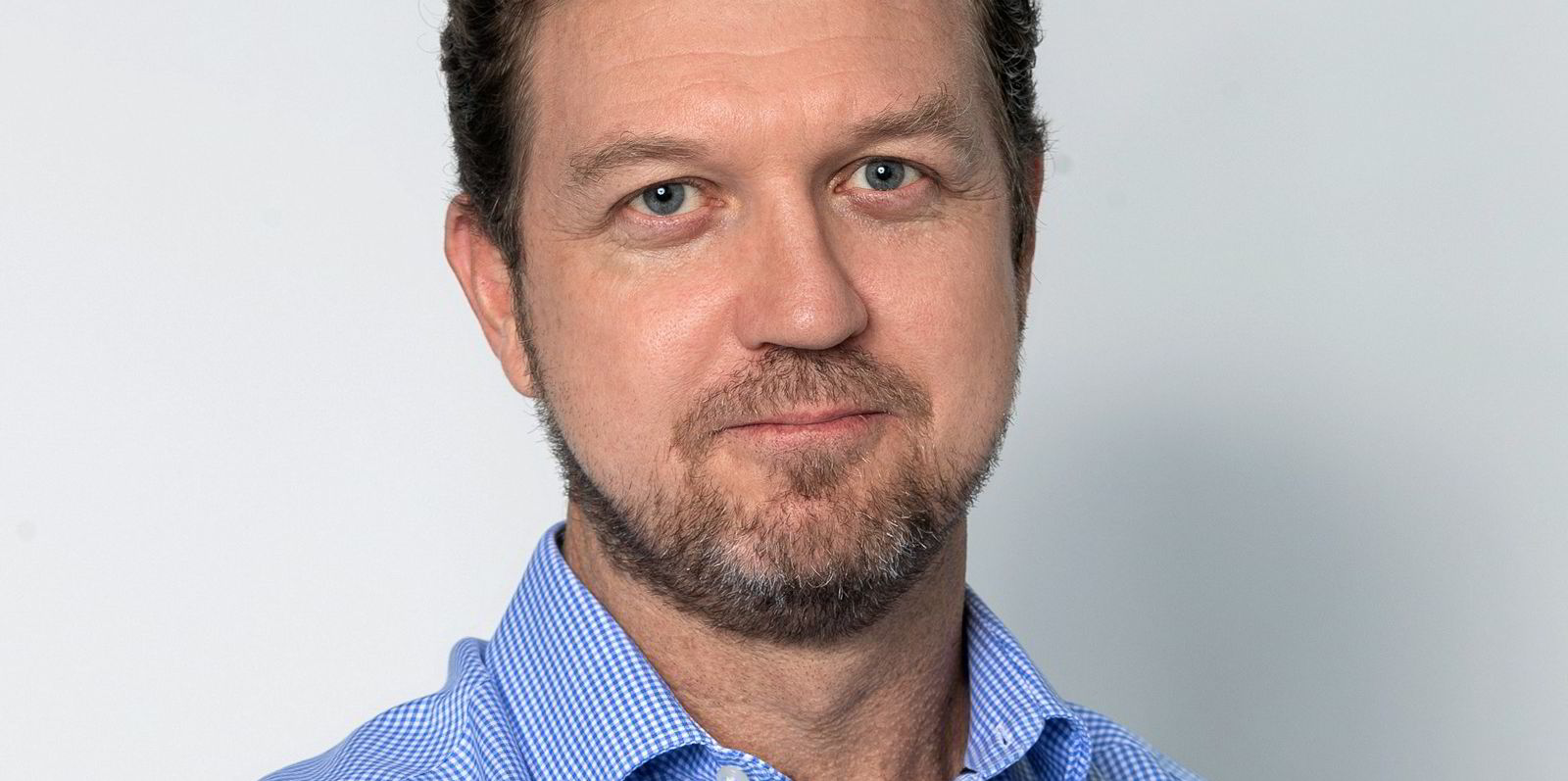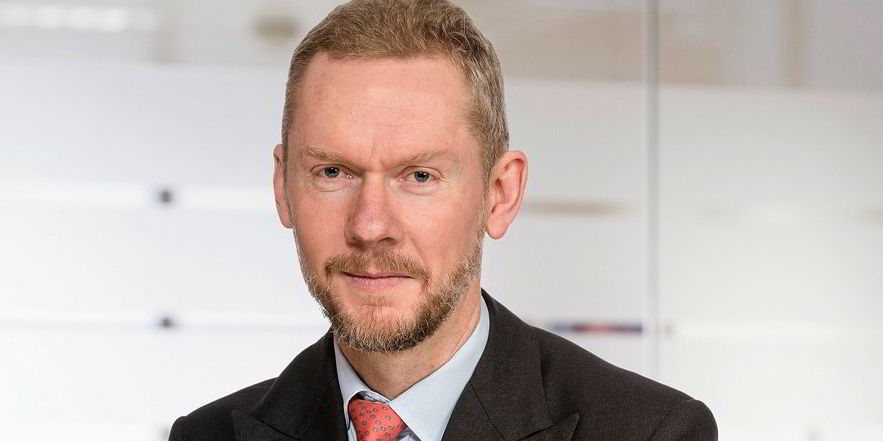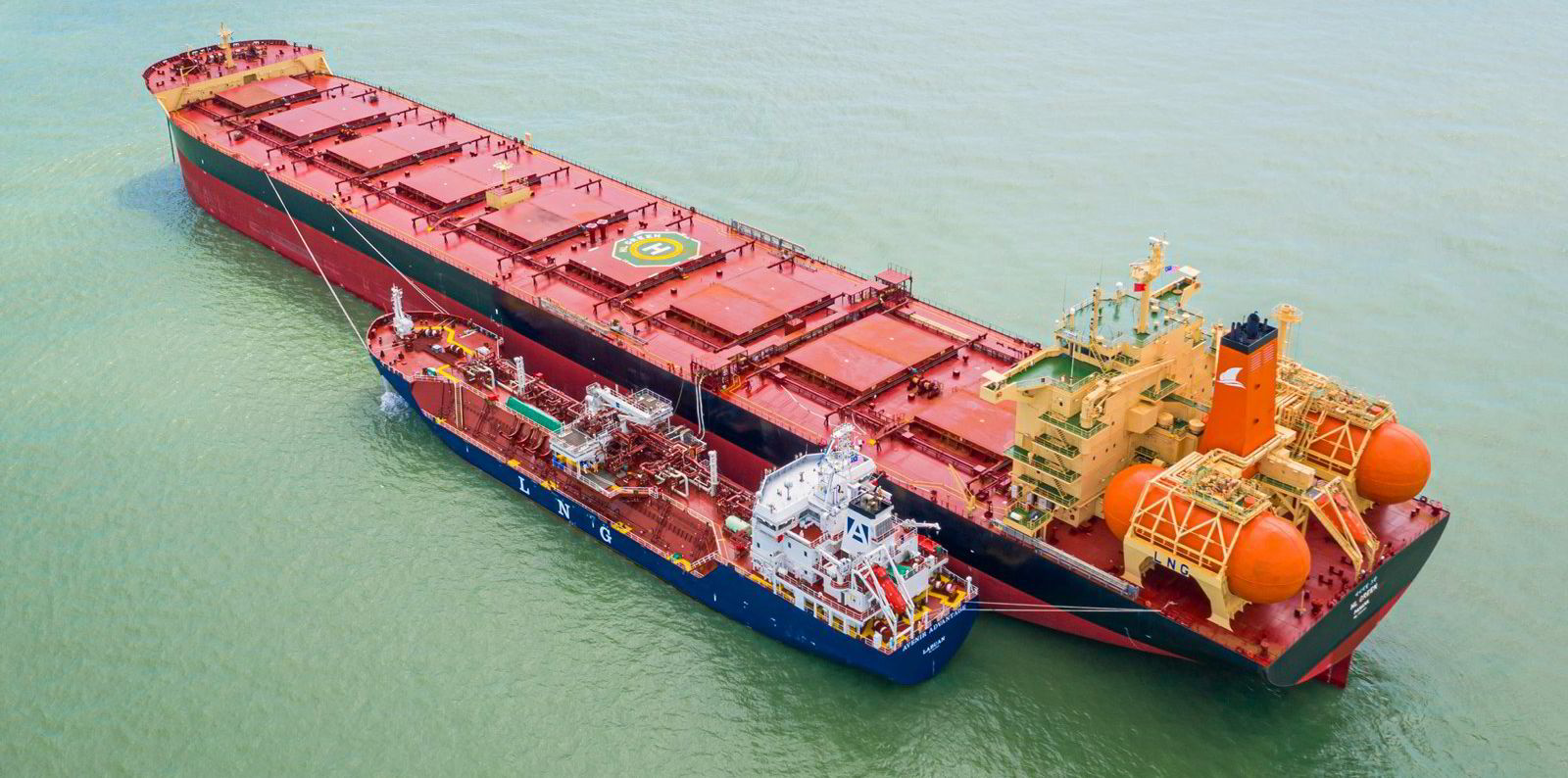While the larger bulkers are grabbing all the headlines for their growing use of alternative bunker fuels, smaller vessels are struggling to meet decarbonation targets, according to a top miner.
Anglo-American’s global head of shipping Peter Lye said the company is seeing some “exciting aspects” to the decarbonisation of big ships, whether that be the development of green corridors or investments in new technology.
The diversified miner wants all its shipping activities to be carbon neutral by 2040 and to reduce its emissions from ocean transport by 30% that year.
For its part it is building a series of LNG-fuelled capesize bulkers at China’s Shanghai Waigaoqiao Shipbuilding, while it has also trialled biofuels and rotor sails as well as looked into the viability of hydrogen and ammonia as future marine fuels.
“But most of the investment in new technology does tend to be focused on the larger ships which are the low hanging fruit,” he told delegates at the TradeWinds Shipowners Forum.
“On the smaller ships where we are looking at vessels for our concentrates and our fertiliser businesses, it is tough to decarbonise.
“We are not seeing a lot of interest in that space just yet, and I think that is an area that really needs to catch up.”
Asked if companies like Anglo American could do more to incentivise those smaller ships he said, “We all get a bit nervous about words like incentivise and what that actually means.
“As a publicly listed company and we have set targets and goals for decarbonisation and believe in those targets. We have to achieve it and that is going to take time, money and resources.”
While brokers such as Clarksons and Affinity (Shipping) are now providing regular data on the uptake of alternative fuels within shipping, there is as yet no publicly available data about adoption by market segment such as supramaxes or smaller.
However, figures from Affinity show that less than 10% of the supramax fleet is ‘eco’, while the level for the handysize fleet is around 25%.





